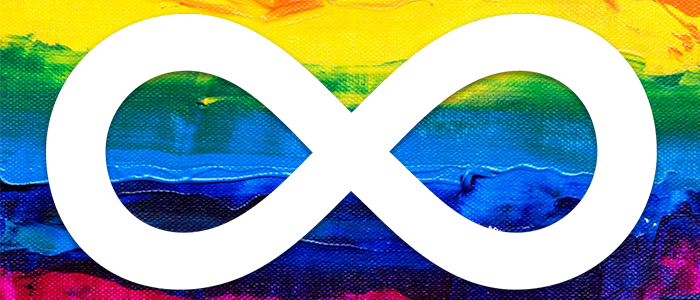What is Autistic Pride Day?
Posted on
Written by Amaze Communications Officer Jae Evergreen. Jae prefers being referred to as Jae rather than any pronouns.
Update June 2020
In January this year I decided I was ready to take the next step, and I legally changed my name! Everyone I know has been supportive, but it’s been a bit of a challenge in many ways. I’ll write about that another time.
For Autistic Pride Day 2020 all I really want to say for now is this:
I’m still discovering who I am, and understanding myself. It’s slow. I’m constantly changing. Evolving. But that’s okay. I’m still me…in fact I’m a more comfortable me. And no one else can say anything that will take my identity away from me.
June 17 2019
It wasn’t until recently that I came to understand that Autistic Pride Day wasn’t an individual day for LGBTQIA+ autistic people to celebrate, but a celebratory day for ALL autistic people.
I had just assumed that because it was in the middle of Pride Month, that it was about gender and sexual diversity.
I’ve since discovered that whilst Pride Month helped shape the meaning of it, the two are completely different events that do, for very good reasons, overlap.
So, this blog is about Autistic Pride Day (18 June) AND Pride Month (June).
What is Autistic Pride Day?
Autistic Pride Day was created by Aspies For Freedom, an advocacy group, to give autistic people a day in which they can celebrate their neurodiversity and differences.
Former Autistic Self Advocacy Network President Ari Ne’eman wrote in 2015 that it “means solidarity with those parts of our community that have not yet had the opportunity to be proud.” That autistic space, community, and culture should be available to all autistic people, no matter their differences.
18 June 2019 marks the fifteenth Autistic Pride Day. Now, this is where Pride Month is linked in. It wasn’t that long ago that all autistic people were afraid of ‘coming out as autistic’. The whole world saw autism as a really bad thing – just like how the world used to view the LGBTQIA+ community. Yes, I know. Not everyone accepts autistic people. There’s some situations where I’m still too afraid to identify myself as autistic. Just like there’s so many situations in which I’m too afraid to discuss my gender and sexuality differences. I’ll get back to that in a little bit. The world is getting better though, even if it feels it’s happening really slowly.
So what does Autistic Pride Day mean for me?
As I’m writing these thoughts, I’ve got TV on in the background. It’s showing an interview with psychologist Steve Biddulph, who is talking about being diagnosed with Asperger’s in his fifties. Host Jane Hutcheon asks Steve how going on stage and talking to thousands of people compares to sitting down with just her. Steve replies “I’d be more comfortable with the audience…I’m shy and nervous on the stage, but within about 30 seconds this wave of happiness goes through the audience, and it stays there for the whole 90 minutes. We have a wonderful time”.
Steve is like me! He has an Asperger’s diagnosis, and he would rather be on stage in front of thousands of people than in a one-on-one interview. I know I’m stronger when I have the attention of a large room versus a smaller audience. I get distracted and bored easily if I can’t feel that connection between an audience and myself.
That reminds me. I need to stop being distracted and answer the question: what does Autistic Pride Day mean for me?
Honestly? Life can be really hard and currently I’m trying to drag myself out of a rough patch. However, being autistic and being me, has enabled me to do some amazing advocacy work over the years. I’ve just passed one year working for Amaze, and I’m going to spend Autistic Pride Day reflecting on the work I’ve done over that time. The lives I’ve impacted – autistic people, allies, parents, professionals. Anyone who has read something I’ve written, listened to my podcasts or attended a workshop where I’ve spoken or facilitated training at. The projects I’ve been involved in – from reviewing Amaze policy documents, to sharing my ideas and thoughts on campaigns. The work I’ve done outside of Amaze, including my mentoring younger autistic people. The friendships I’ve maintained with other autistic people. How far I’ve grown myself in understanding more about my capacity, and learning that it’s okay to say no to things that are too complex/hard, or that I’m just too tired to do.
I’m proud of being me. Autism is a part of who I am, it can’t be separated. So yes, I’m also proud of being autistic. Not all the time, but I don’t know what life would be like if I wasn’t, so I’ve learnt to navigate the world the best I can.
Intersectionality: autism, gender and sexuality
Intersectional theory asserts that people are often disadvantaged by multiple sources of oppression: race, nationality, disability, gender identity, sexual orientation, religion, and other identity markers. Today, intersectionality is crucial to the work Amaze does, even if we don’t realise it! We’re being asked to, and are, more importantly, undertaking conversations and projects to include the different experiences and identities of autistic people.
While there hasn’t been much research on this, we know that autistic people are more likely to identify as being LGBTQIA+ diverse. Amaze’s recent information sheet for parents of transgender/gender diverse children mentions that the Royal Children’s Hospital in Melbourne has data showing that 15% of young people attending their Gender Service Clinic have an autism diagnosis. This is considerably higher than the research which shows that 1% of neurotypical people identify as transgender or gender diverse.
LGBTQIA+ autistic people then tend to find themselves having to work extra hard to be accepted and understood by society. Instead of sitting in one of the intersectional oppression categories, they end up in two or three.
My identity
I’m still trying to figure out my gender and sexual identities. If you asked me a year ago, I would have identified as asexual. A lot changes in a year, though. For the past six months or so I’ve been on hormone therapy treatment, because I had really low testosterone levels. Without going into any details, hormone therapy really does change the way the brain thinks. I now identify as pansexual. It took me a long time to understand that I do have sexual attraction, however I don’t think about gender or sexuality – if I click with a person it’s because of their individuality and uniqueness, not their genitals.
At some ridiculous hour (something like 2am) a few days ago, I actually came out on Twitter as being non-binary. Reflecting on this revelation, I’m not sure if it’s the…right label. I’m still thinking whether I’m gender-fluid. Recently, having lost a lot of weight in the past year, I’ve started to really feel the cold that winter brings. Sensory-wise, but also because I like to be unique, I’m choosing to wear leggings with shorts, rather jeans or tracksuit pants. The other day I was buying socks, and I had the sudden urge to get the bright fluoro pink ones. Instead, I got the more male blue-green pair, for fear that the pink pair would attract unwanted comments from people. So I’m still figuring out my gender identity.
Labelling my gender and sexuality won’t change who I am though. Like how I continue to learn the way autism intersects with my life, I’ll continue to learn about my gender and sexuality. I’ll learn to accept myself for who I am, and try not let other people who may disapprove bring me down.
I’ll continue to be me, I’m unique, different and diverse…. just like you are.
Definitions
- ASEXUAL Or “ace”: Someone who experiences little to no sexual attraction. They are not to be confused with “aromantic people,” who experience little or no romantic attraction. Asexual people do not always identify as aromantic; aromantic people do not always identify as asexual.
- PANSEXUAL: Someone who is attracted to people of all gender identities. Or someone who is attracted to a person’s qualities regardless of their gender identity. (The prefix “pan” means “all,” rejecting the gender binary that some argue is implied by “bisexual.”)
- NON-BINARY: A person who identifies as neither male nor female and sees themselves outside the gender binary. This is sometimes shortened to N.B. or enby.
- GENDER FLUID: A term used by people whose identity shifts or fluctuates. Sometimes these individuals may identify or express themselves as more masculine on some days, and more feminine on others.
- More LGBTQIA+ definitions
Further Readings
- You can read the history of how June came to be Pride Month here.
- You can read more of Ari’s letter from 2015 here.

